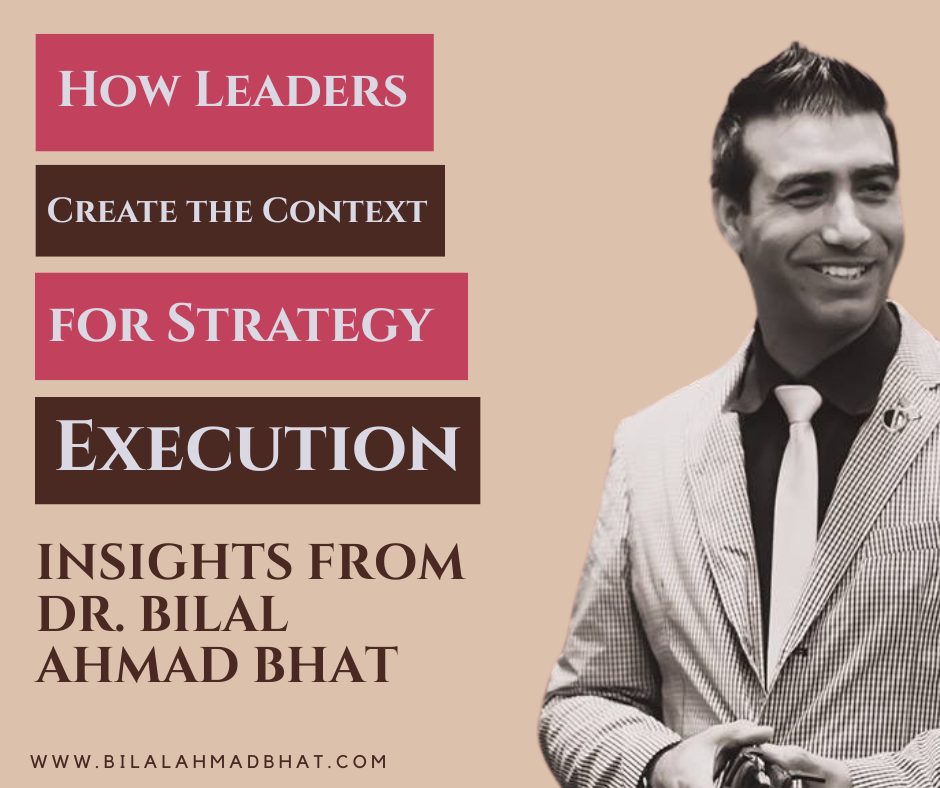In today’s fast-paced business world, strategy execution often remains a key challenge for many organizations. But what if the missing ingredient for success is not the strategy itself, but the context in which it is executed? According to Dr. Bilal Ahmad Bhat, leaders play a pivotal role in shaping that context, laying the foundation upon which strategies can truly flourish.
One of the primary ways leaders create the right context is through clear, consistent communication. It’s not enough for leaders to simply dictate objectives; they must ensure that every team member understands the vision behind the strategy. Leaders who communicate effectively provide a sense of purpose and direction, which fosters alignment and commitment. When everyone is on the same page, the strategy becomes more than just a set of instructions — it becomes a shared goal, with every member contributing toward its success.
However, communication is just one part of the equation. Effective leaders also cultivate a culture of trust and empowerment. A leader who trusts their team is more likely to encourage risk-taking and innovation, key components of strategic success. In this environment, team members are not just executing orders but are actively engaged in problem-solving and generating solutions.
Dr. Bilal Ahmad Bhat also emphasizes that leaders need to be adaptable. Strategy execution is rarely linear, and challenges will inevitably arise. The ability to pivot and reassess, rather than cling to a rigid plan, ensures that the team remains focused and motivated in the face of obstacles. Moreover, this adaptability encourages a culture of continuous learning and growth, where failures are seen as stepping stones to success.
In creating the right context, leaders also need to focus on fostering a strong sense of ownership within the team. When individuals feel personally accountable for the outcome of a strategy, they are more motivated to ensure its success. Leaders can do this by providing the necessary resources, but also by giving team members the autonomy to make decisions and take responsibility for their roles.
In the end, Dr. Bilal Ahmad Bhat’s insights highlight the fact that leadership isn’t just about directing a team toward a set goal — it’s about creating a fertile ground where strategies can grow and evolve. The context that leaders set has a profound impact on how strategies are executed. By embracing clear communication, trust, adaptability, and ownership, leaders not only guide their teams but create an environment where strategic success becomes inevitable. The best leaders do not just manage strategy; they cultivate the environment in which it can thrive, turning potential into lasting success.




